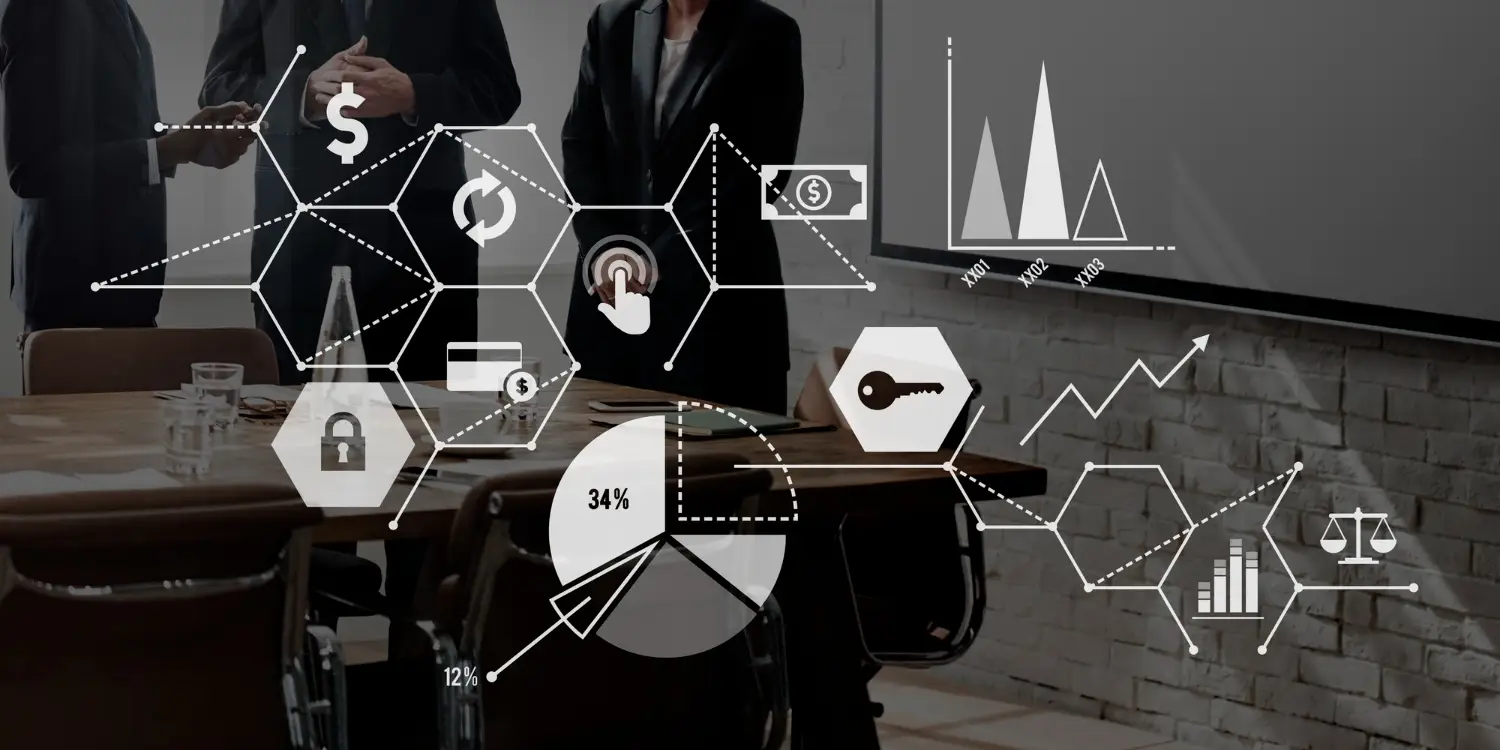Accounting in 2025 is undergoing a transformation driven by technology, sustainability, and evolving business needs. In this fast-paced era, understanding these trends can give businesses a competitive edge. How are artificial intelligence, regulatory changes, and environmental concerns shaping the present? Discover the key shifts redefining accounting and prepare your organization for success.
The Rise of AI-Powered Accounting Solutions
Artificial Intelligence (AI) is revolutionizing the accounting industry by automating repetitive tasks like data entry, reconciliation, and financial forecasting. Tools like QuickBooks Online Advanced not only process transactions faster but also identify anomalies in data that could indicate fraud. For example, a manufacturing company using AI-driven invoice software noticed irregularities in its vendor payments, saving over $100,000 annually by addressing inefficiencies.
AI’s predictive capabilities are also changing the game. Platforms like Microsoft Dynamics 365 Finance enable businesses to forecast revenue more accurately. This predictive power has allowed companies to avoid liquidity crises by identifying cash flow shortages months in advance. These advancements underscore how AI doesn’t just save time—it transforms strategic planning.
According to Grand View Research, the AI accounting market is growing at an annual rate of 30%, solidifying its role as a non-negotiable tool for businesses aiming to remain competitive.

Real-Time Financial Insights: The New Standard
Real-time financial data is no longer a luxury; it’s a necessity for agile decision-making. Businesses relying on cloud-based platforms, such as Oracle NetSuite, now access live updates on key metrics like cash flow, sales, and expenses. This immediacy has proven invaluable in industries like retail, where sudden shifts in consumer demand require quick adjustments to inventory and pricing.
For instance, a mid-sized retail chain used cloud dashboards to identify an unexpected spike in seasonal sales. Acting on this data, they quickly reallocated budget to marketing efforts, increasing revenue by 15% during a critical period. This example demonstrates how real-time insights enable proactive decision-making that directly impacts the bottom line.
A study by Accenture highlights that companies leveraging these insights see 45% better decision-making efficiency, showing the clear advantage of real-time reporting in today’s dynamic market.
Sustainability Reporting: Beyond Compliance
Sustainability is no longer an optional focus for companies; it has become a financial priority. Many businesses now integrate Environmental, Social, and Governance (ESG) reporting into their financial practices, not only to comply with regulations but to strengthen their brand reputation.
One company leading by example is Patagonia, which aligns its ESG metrics with its environmental goals. By transparently reporting on its supply chain emissions and sustainability initiatives, Patagonia has cultivated stronger loyalty among eco-conscious consumers. This practice isn’t limited to retail; businesses in all sectors are realizing that ESG metrics are critical for attracting investors, as 78% of CFOs highlighted in a 2023 Deloitte survey.
Additionally, companies using frameworks like the Global Reporting Initiative (GRI) report reduced operational inefficiencies. An energy firm implementing GRI standards reduced energy consumption by 20%, translating to significant cost savings and a stronger market position. This illustrates how sustainability is reshaping financial practices while delivering tangible
Taxation in a Digital Economy
Digital tax compliance is becoming increasingly complex as e-commerce and cryptocurrencies dominate the financial landscape. Regulations such as real-time e-invoicing are reshaping how businesses interact with tax authorities. For instance, in Brazil, the Nota Fiscal Electrônica system requires companies to issue electronic invoices in real time, ensuring immediate tax reporting and reducing opportunities for evasion.
A U.S.-based exporter transitioning to Brazil’s system initially faced operational hurdles but ultimately reported smoother compliance processes and a 20% reduction in penalties related to tax errors. Similarly, businesses dealing with cryptocurrency transactions are now tracking every trade meticulously to comply with IRS guidelines, avoiding hefty fines for non-compliance. These regulatory shifts demand that companies adapt quickly to avoid financial and reputational risks.
.
The Role of Blockchain in Accounting Transparency
Blockchain is transforming accounting by offering unparalleled transparency and security in financial transactions. Its distributed ledger system ensures that records cannot be tampered with, reducing the likelihood of fraud. In one instance, a multinational corporation integrated blockchain to track supply chain payments. This not only eliminated unauthorized modifications but also saved the company millions by reducing auditing times.
The benefits extend to audits themselves. By integrating blockchain, Ernst & Young (EY) cut verification times by 30%, allowing their clients to close financial periods faster and with greater accuracy. For businesses looking to build trust with stakeholders, blockchain offers a practical solution for improving accountability while driving efficiency.

Upskilling Accountants in 2025
Automation is shifting accountants’ roles from transactional tasks to strategic decision-making, making continuous education essential. A World Economic Forum report predicts that over 50% of accounting roles now require advanced skills in areas like data analytics and sustainability reporting. Businesses investing in employee development are seeing tangible returns.
For example, a logistics company that introduced mandatory training in AI-driven accounting tools for its finance team observed a 15% increase in productivity and reduced turnover rates. Employees who felt supported in their professional growth were more engaged, leading to higher retention and better overall performance.
Educational programs like Coursera’s Financial Analytics Certification are equipping accountants to excel in this new era. By fostering a culture of learning, businesses are not only future-proofing their workforce but also enhancing their ability to adapt to rapid industry changes.
Balancing Technology with Human Expertise
While technology is revolutionizing accounting, it’s the human element that adds strategic value. Accountants equipped with AI tools and blockchain platforms still play a critical role in interpreting data, advising clients, and shaping financial strategies. For example, a tech startup using AI to manage cash flow still relies on its CFO to decide how to allocate surplus funds effectively, balancing automation with judgment.
You may also be interested – Enhancing Accounting and Collections: Solsync’s Approach to Quality and Continuous Improvement

Key Takeaways for 2025
- Adopt AI tools to reduce manual tasks and enhance accuracy.
- Use real-time insights to anticipate market shifts and make informed decisions.
- Integrate sustainability reporting to align with stakeholder expectations and regulatory demands.
- Stay ahead of digital tax regulations to mitigate compliance risks.
- Leverage blockchain technology for transparent and efficient financial operations.
- Invest in employee upskilling to maintain a competitive edge in a changing landscape.
Conclusion
Accounting in 2025 is about more than numbers—it’s about embracing innovation, sustainability, and adaptability. Businesses that harness tools like AI, adopt blockchain, and invest in upskilling their teams are better positioned to thrive. By understanding and integrating these trends, companies can drive growth, build trust, and secure long-term success in a competitive environment.
Bibliography
- Grand View Research. (2023). AI in Accounting Market Size, Share & Trends.
- Accenture. (2024). Real-Time Financial Reporting Study.
- Deloitte. (2023). The CFO’s Guide to Sustainability Reporting.
- PricewaterhouseCoopers. (2024). Blockchain in Auditing Case Studies.
- World Economic Forum. (2023). The Future of Jobs Report.
- EY Blockchain Insights. (2024). Blockchain’s Impact on Financial Services.
- Harvard Business School. (2024). Financial Leadership in a Digital Age.






